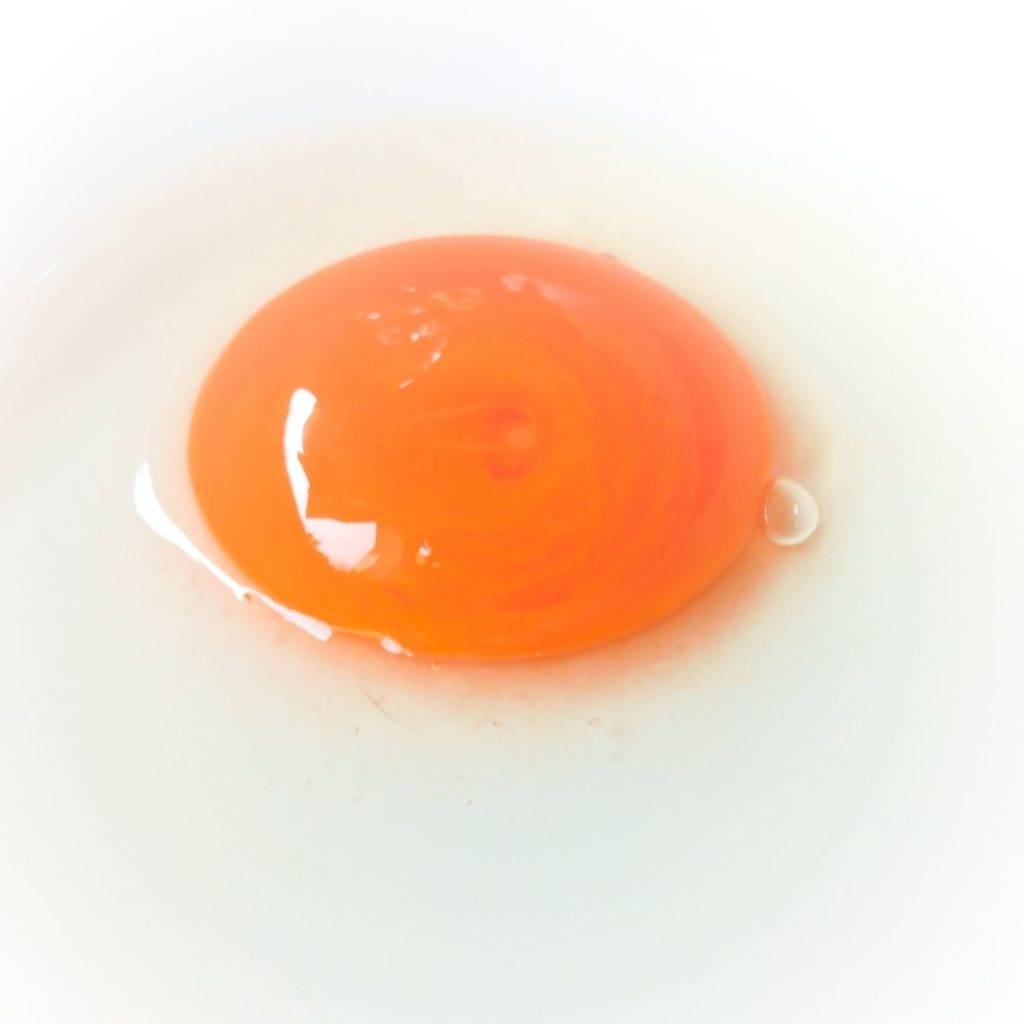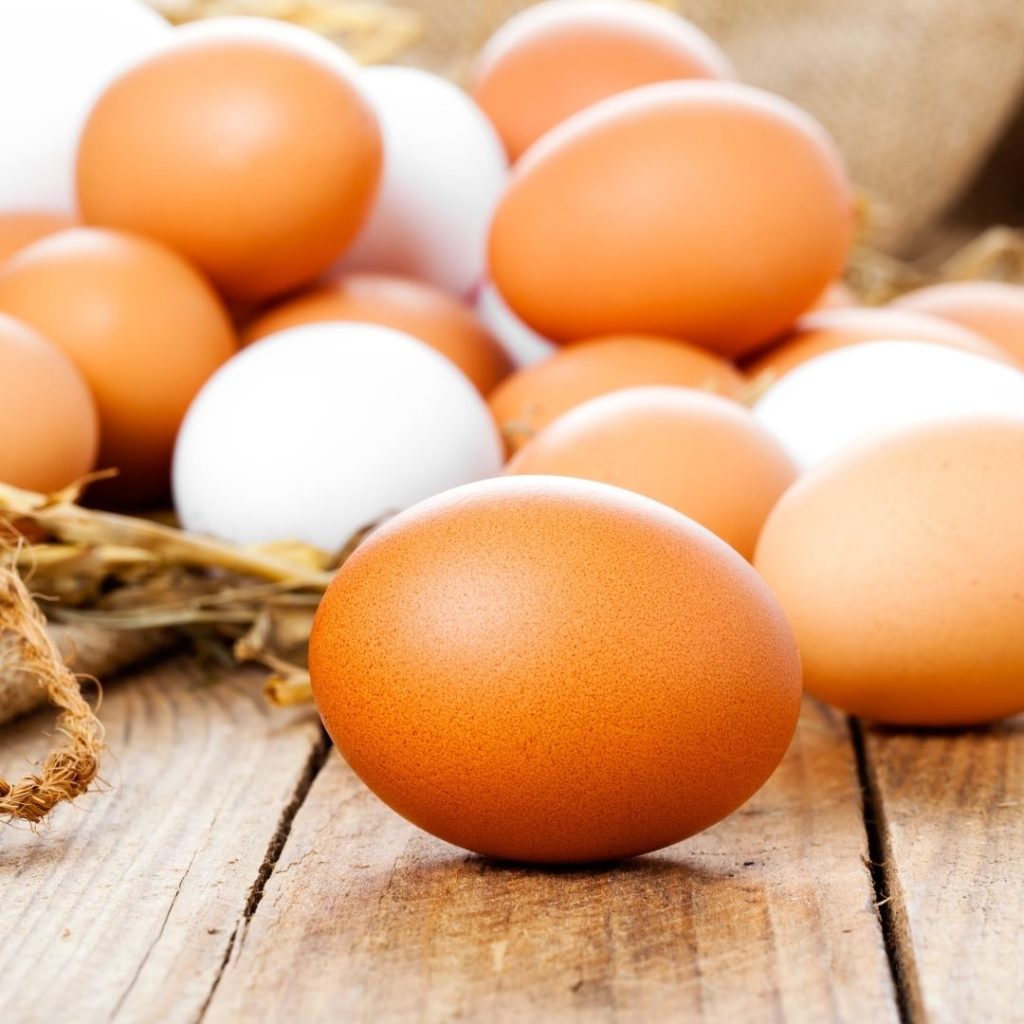Have you ever found yourself confused by the many labels on an egg carton? What’s the difference between cage-free and free-range? Let’s have the important discussion on how to have the best quality animal products; beginning with eggs.
Last blog, we talked about the many organic labels, what they mean & how to source quality fruits and veggies. If you didn’t see that blog, check it out here!
Now it’s time to talk about animal products. This can be confusing because some say they’re the worst while others say they’re the best.
Please note that this is not the place to promote your diet, whether you are vegan or carnivore or anything in between. I believe that different diets work for different people, and if you’ve found something that works for you I’m so happy to hear it!
In my opinion, animal products (when quality sourced) are some of the most nutrient-dense foods.
Since we’re talking about them today, let’s use eggs for an example. Eggs are very nutritious. The whites are packed with complete protein, the yolks have plenty of vitamins and minerals that we don’t get from many other foods. They specifically have fatty acids, vitamin A, vitamin D, healthy cholesterol, and choline. Additionally they have other vitamins such as E and B12 AND minerals selenium and phosphorous. Sounds like nature’s multivitamin to me.
All About Egg Labels
Since eggs are so healthy, which ones should we purchase? This can be especially confusing. Natural? Free range? Cage free? Pasture-raised? Do any of these labels make a difference? Let’s break it down one by one.
- Natural
- This isn’t something you should seek for on an egg label. Chickens are natural, they’re animals. Eggs come naturally from chickens. If an egg carton doesn’t say natural, don’t sweat it. They’re still natural and always will be. 🙂
- This isn’t something you should seek for on an egg label. Chickens are natural, they’re animals. Eggs come naturally from chickens. If an egg carton doesn’t say natural, don’t sweat it. They’re still natural and always will be. 🙂
- Cage free
- This means the chickens aren’t raised in a confined cage. It doesn’t mean they have access to the outdoors, though. It just means no cage. They could very well be cage free in a small warehouse. This term also doesn’t have any regulation on the chicken’s diet.
- This means the chickens aren’t raised in a confined cage. It doesn’t mean they have access to the outdoors, though. It just means no cage. They could very well be cage free in a small warehouse. This term also doesn’t have any regulation on the chicken’s diet.
- Free range
- This means chickens have access to food, water, and the outdoors. Outdoors doesn’t mean grass, though. It could, but it could also mean concrete. This one also has no regulation on the chicken’s diet.
- This means chickens have access to food, water, and the outdoors. Outdoors doesn’t mean grass, though. It could, but it could also mean concrete. This one also has no regulation on the chicken’s diet.
- Organic
- When eggs are labeled organic, the chickens are cage free, fed a no pesticide diet, have no hormones/antibiotics, and have seasonal outdoor access.
- When eggs are labeled organic, the chickens are cage free, fed a no pesticide diet, have no hormones/antibiotics, and have seasonal outdoor access.
- Pasture-raised
- This means the chickens are raised in a pasture with outside access. The chickens have a life like what they would naturally have- outside access to a pasture, foods they would eat, and sunshine. Pasture raised are both the most ethically produced & nutritionally dense. These are the kind of eggs that I both buy and recommend.
- This means the chickens are raised in a pasture with outside access. The chickens have a life like what they would naturally have- outside access to a pasture, foods they would eat, and sunshine. Pasture raised are both the most ethically produced & nutritionally dense. These are the kind of eggs that I both buy and recommend.
- Certified Humane
- Chickens are given at least a certain amount of space, their own dust bathing area, perches & an environment with a low ammonia level. This is because ammonia can be toxic to chickens at a high level. If you want to read further about the certified humane standards, I recommend checking out this article on the treatment of the egg laying hens.
- Chickens are given at least a certain amount of space, their own dust bathing area, perches & an environment with a low ammonia level. This is because ammonia can be toxic to chickens at a high level. If you want to read further about the certified humane standards, I recommend checking out this article on the treatment of the egg laying hens.
- Vegetarian
- Chickens naturally graze on bugs and small rodents, so a vegetarian diet doesn’t have to be necessary for a healthy chicken. This label is also one I wouldn’t seek out.
Fully Forward Approved Egg Labels
- PASTURE RAISED
- Pasture raised eggs are the best option. Chickens that have access to an outside pasture are in the most natural conditions they can be. This assures a higher quality, nutrient dense egg and ethical treatment of the animal that produces it. Pasture raised eggs are often also organic and certified humane.
- Pasture raised eggs are the best option. Chickens that have access to an outside pasture are in the most natural conditions they can be. This assures a higher quality, nutrient dense egg and ethical treatment of the animal that produces it. Pasture raised eggs are often also organic and certified humane.
- ORGANIC
- You may see the organic label on any of these egg labels, which is great! Organic ensures that the chicken has good treatment and the egg is high quality. The best would be organic pasture raised eggs.
- You may see the organic label on any of these egg labels, which is great! Organic ensures that the chicken has good treatment and the egg is high quality. The best would be organic pasture raised eggs.
- CERTIFIED HUMANE
- It’s always a good thing to see the certified humane label on an egg carton. This way you know that the chickens are treated in a humane way & have access to what is mentioned above. Again, you may find this label on pasture raised labels, cage free labels, etc.
- It’s always a good thing to see the certified humane label on an egg carton. This way you know that the chickens are treated in a humane way & have access to what is mentioned above. Again, you may find this label on pasture raised labels, cage free labels, etc.
- CAGE FREE & FREE RANGE (kinda)
- These eggs aren’t necessarily bad, but they are a bit lacking in information. While it is good that the chickens may not be in a confined cage and have access to a place to run around, we don’t know their diet or what environment they’re in. If you see this on a pasture raised, organic, or certified humane labeled egg carton, then you have the green light from me. However, if the eggs are only labeled with these, they’re questionable (in my opinion).
Another option to find quality eggs is to contact your local farmers to see if they sell eggs. Many have an abundance of them and also treat their chickens very well!
THE COLORS OF AN EGG
When looking for a quality egg, it’s good to take note of the yolk color, as well. A high quality egg is going to have a bright, orange yolk. A low quality egg is going to have a pasty light yellow yolk. Here is an example of a quality egg yolk:

The reason being is the more orange the yolks are, the more nutrient dense they are. That orange color is a carotenoid pigment (which converts to vitamin A in the body). This comes from the chickens having good treatment and nourishment, ending in the production of a super nutrient-dense egg.

When it comes to the color of the shell, it’s a little different. This is another thing you may see on an egg label: “brown eggs!” However, brown eggs, white eggs, and every color in between doesn’t determine the nutrient density of the egg. Eggs are all different colors depending on the breed of the hen. The labels mentioned above are more important than the color of the outside of the egg.
Is there any harm in buying low quality eggs?
While conventional eggs still have protein, fats and plenty of nutrients, it is likely that they have much less than a quality sourced egg. Especially in the vitamins and minerals category.
It is very similar to meats & milks; how was the animal treated before used for consumption? Often times, if the animal is producing an abundance of stress hormones, is close to abused, or isn’t getting the proper nutrition, the quality of the food it produces will be similar to that of the quality of it’s life.
Aside from the nutrient-density, humane treatment of animals is always the right thing. Animals produce quality food for us humans, it’s the least we can do to support companies who value their treatment.
Thanks for checking out this week’s post. Remember, quality over quantity is important! Supplying you and your family with quality foods shouldn’t be confusing or hard. Soon, I will be talking about sourcing other quality animal products, such as meat and dairy. I’ll link those blogs here when I finish them.
Much love, and see ya next blog!

Great information. And I agree with treating the animals humanly, all animals.
Yes! Glad you enjoyed the post 🙂 <3
Pingback: Your complete guide to protein: hacks, snacks & what you really need